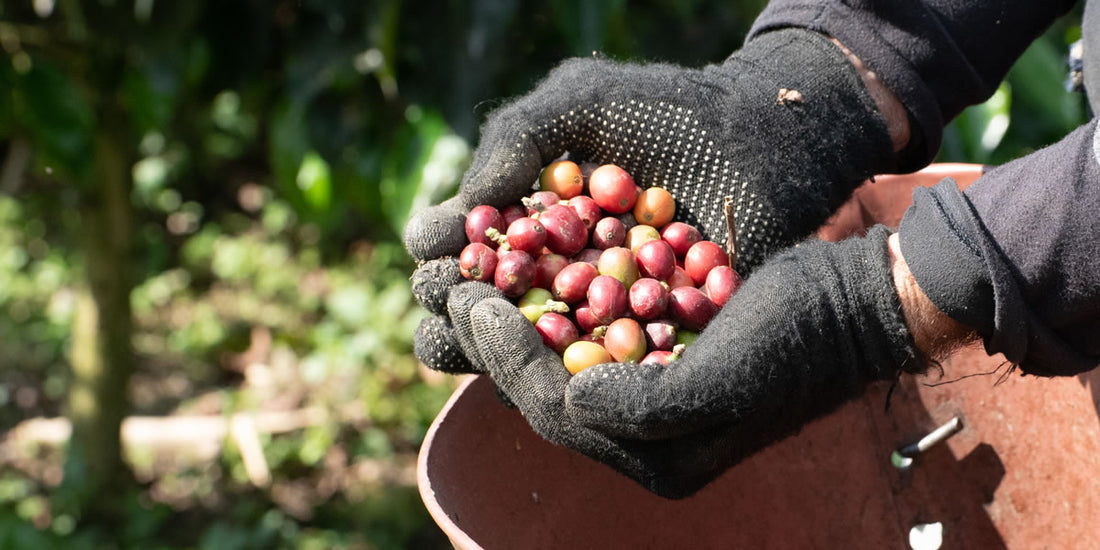
Single Origin Coffees: What They Are and Why You Should Try Them
Share
Coffee is one of the most popular beverages in the world, consumed by millions of people every day. But not all coffee is created equal. One type of coffee that has been growing in popularity in recent years is single origin coffee. In this blog post, we'll explain what single origin coffees are, why they're important, and how to choose and brew them for the best possible flavor.
What are single origin coffees?
Single origin coffees are coffees that come from a single geographic region, such as a specific farm, estate, or cooperative. This means that all the beans in a single origin coffee come from the same place and are not blended with beans from other regions or countries. Single origin coffees are typically associated with high-quality, specialty coffee and are often grown in small quantities.
Single origin coffees are different from blends, which are coffees that are made up of beans from multiple regions or countries. Blends are often created to achieve a specific flavor profile or to balance out the characteristics of different beans. Single origin coffees, on the other hand, are prized for their unique and distinct flavor characteristics that are a reflection of the terroir (soil, climate, altitude, etc.) of the region where they are grown.
Some famous single origin coffees include:
- Ethiopian Yirgacheffe: Known for its floral and fruity flavors, with notes of blueberry and bergamot.
- Colombian Supremo: A classic coffee with a balanced flavor profile and notes of caramel and chocolate.
- Jamaican Blue Mountain: A rare and expensive coffee with a mild flavor, notes of chocolate and nuts, and a smooth finish.
- Costa Rican Tarrazu: A bright, acidic coffee with notes of citrus and honey.
Why choose single origin coffees?
One of the main reasons to choose single origin coffees is for their unique and distinct flavors. Because they come from a single region, they often have specific characteristics that are a reflection of the terroir where they were grown. For example, a coffee grown in a high-altitude region may have a bright, acidic flavor, while a coffee grown in a lower altitude region may be more mellow and sweet.
In addition to their unique flavors, single origin coffees also offer environmental and ethical benefits. Because they are often grown in small quantities and come from specific regions, single origin coffees cansupport sustainable and environmentally-friendly farming practices. Many single origin coffees are grown by small-scale farmers who prioritize organic and sustainable farming methods, which can help protect local ecosystems and reduce the use of harmful pesticides and chemicals.
Choosing and brewing single origin coffees
When choosing a single origin coffee, it's important to consider the roast level and flavor profile. Some single origin coffees may be roasted light, while others may be roasted dark, and each roast level can bring out different flavors and aromas. Look for coffee descriptions that include tasting notes and flavor profiles to help you choose a coffee that matches your preferences.
When brewing single origin coffees, it's important to use the proper techniques to bring out the unique flavors and characteristics of the coffee. Start by grinding the coffee beans just before brewing to ensure maximum freshness. Depending on the coffee and your preferred brewing method, you may want to use a specific brewing temperature, grind size, and brewing time to optimize the flavor.
One popular brewing method for single origin coffees is the pour-over method, which involves pouring hot water over ground coffee in a filter to extract the flavors slowly and evenly. Other brewing methods, such as French press, Aeropress, and espresso, can also be used to brew single origin coffees.
Conclusion
Single origin coffees offer a unique and distinct flavor experience that is a reflection of the terroir where they were grown. By choosing single origin coffees, you can support sustainable and environmentally-friendly farming practices and enjoy a high-quality, specialty coffee. When choosing and brewing single origin coffees, it's important to consider the roast level, flavor profile, and brewing technique to bring out the best possible flavors and aromas. So next time you're looking for a cup of coffee, consider trying a single origin coffee for a truly unique and delicious experience.
